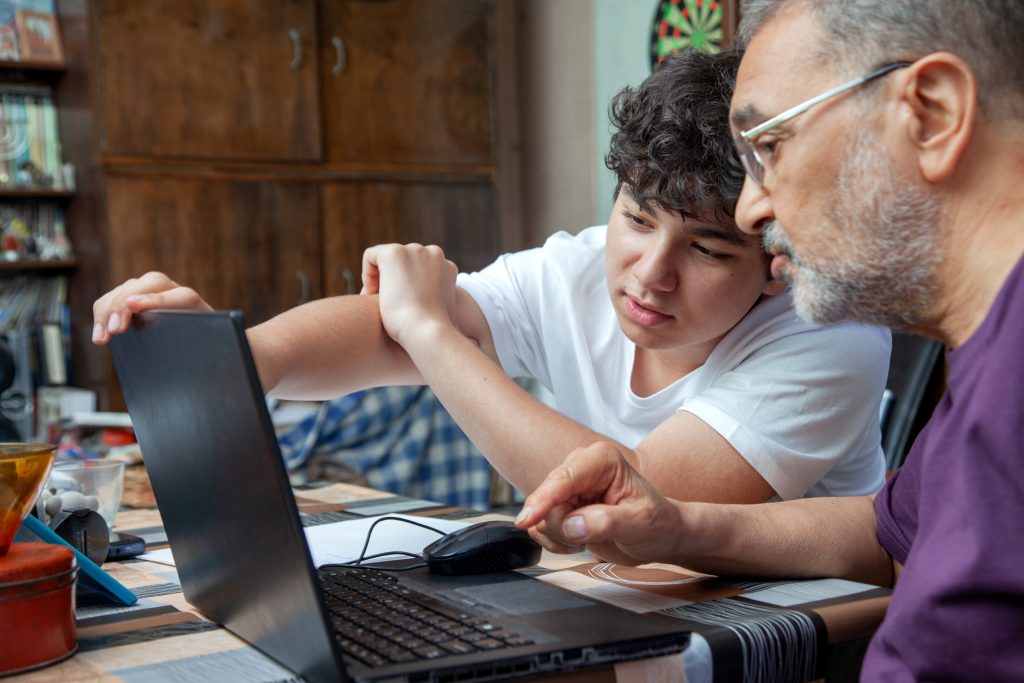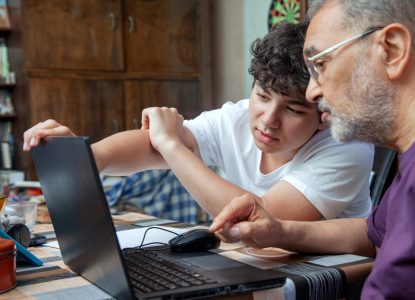By Dr Scherto Gill, Convenor of IF20 High-Level Dialogue & Chair of IF20 Education Working Group
– – –
The G20 Interfaith Forum (IF20) offers an annual platform for religious, faith, and interfaith organizations and communities to constructively engage with the agendas set by the G20 leaders. For 2021, the G20’s agenda focuses on “People, Planet, Prosperity,” and the IF20 dedicated its reflection and dialogue on the theme of “A Time to Heal.”
Global Challenges
The COVID-19 pandemic has exacerbated inequalities in worldwide educational systems. In particular, during the mass school closures, and the attempted shifts to hybrid modes of learning, significant inadequacies and drastic global disparities in students’ access to quality education have been brought to light.
Alongside these concerns is the recognition of suffering (material, physical, social-emotional, mental, and spiritual) endured by children and young people throughout the lockdowns, and the striking gap in the provision of online learning facilities and resources between higher and lower income countries. All these have further aggravated an existing epidemic of youth “ill-being,” with those who were already at the margins at the center of the suffering.

IF20 Global Listening Initiative 2021
To understand how education can contribute to the above challenges, the IF20 Education Working Group partners launched a Global Listening Initiative (GLI). The aim of the GLI was two-fold:
- To ground policy inquiry in existing global proposals
- To understand the lived experiences of children and young people in diverse contexts, and engage them in identifying actions for educational transformation
The GLI consisted of two parts: an extended Desk Review to listen to the widespread calls to action from diverse international organizations, global educational commissions, religious communities, grassroots movements, and scholars; and a global consultation to listen to young people and engage with their perspectives.
Over two thousand adolescents (aged 14-19) from 26 countries across five continents took part in online and/or in-person workshops hosted by NGOs, schools, and faith-based organizations. Adolescents from diverse backgrounds were invited to reflect on their experiences with life and education during the Covid-19 pandemic; identify who and what have been most supportive to their learning and well-being; and propose educational policy priorities that can explicitly support their healing, learning, and flourishing.
Participants’ insights were drawn out through a deep listening/dialogic process, and immersive data analysis brought together themes arising from structured and unstructured facilitator and youth reports, images, drawings, and quotes from participants.
Both processes have yielded a rich understanding of the potential of working purposefully through education programs as a way to advocate for and advance equity, inclusion, and well-being. Conceptions of healing and well-being rooted in faith, indigenous tradition, and other spiritual traditions played an important part in guiding the GLI’s reflection.
IF20 Education Policy Brief and Priorities Proposed by Global Adolescents
In light of the policy priorities outlined by G20 leaders and the emergent insights from the GLI processes, the IF20 Education Working Group partners support five key interconnected recommendations to address global challenges in education:
- Safeguard healing and well-being as a cornerstone of education
- Engage youth in educational decision-making
- Ensure equitable and consistent access to quality education for all
- Embed global and ecological concerns in curricula agendas
- Prioritize teachers’ well-being and their capacities to facilitate blended learning
IF20 High-Level Dialogue on 28th September 2021
On 28th September, an IF20 high-level dialogue took place on Zoom, chaired by the IF20 Vice President, Professor Katherine Marshall. National politicians, interfaith leaders, and international educational directors drew on their expertise and experiences and explored how the working group’s priorities and proposed actions might be meaningfully integrated in relevant contexts.
Most importantly, selected young people who took part in the Global Listening Initiative joined global leaders and shared their voices and their rationales for such policy priorities and subsequent actions. This was regarded as a unique opportunity for global leaders to engage directly with young people in co-imagining and co-creating educational ecosystems that nurture both human well-being and the wellness of nature.
Key Reflections from High-Level Leaders
All leaders who were present at the dialogue expressed their appreciation for the young people’s efforts and fully endorsed the educational policy priorities from the IF20 Global Listening Initiative.
It was recognised that the more foreboding our plenary emergencies and the more complex our global challenges, the greater need we have for dialogue, listening, love, care, and human fraternity. The IF20 Educational Working Group partners highly value the ideas, advice, and guidance provided by the global leaders. Pertinent to the young people’s interests include:
Healing and well-being through spirituality and education
Judge Mohammad Abdulsalam (Secretary General, High Committee for Human Fraternity) evoked the imperative of healing past wounds and promoting well-being through spirituality and education.
The significance of spirituality through interreligious and interfaith learning in enabling the flowering of every child’s full potential was equally highlighted by Prof. Anantanand Rambachan (Co-President, Religious for Peace).
The spiritual vision of education was further echoed in Argentina National Deputy Victoria Morales Gorleri’s and Bhai Sahib Mohinder Singh’s (Chairman of Nishkam Group of Charity Organisations) reflection on humanity’s oneness and the role of spirituality in education in enriching and nourishing human fraternity and solidarity as the basis to confronting global challenges and ensuring the co-flourishing of all.
Lord John Alderdice (UK House of Lords) drew on Shruthi’s (18, India) words about younger generations as the bearers of humanity’s dreams, and proposed that faith communities have a key part to play in supporting all children and youth. He also added that this requires people of faith to listen deeply and learn to appreciate the gifts we bring to each other.
Professor Italo Fiorin (Senior Advisor, Catholic Congregation of Education of the Holy See /Advisor, Italy National Ministry of Education) said he resonated with this wisdom of deep listening and shared the three key aspirations that His Holiness Pope Francis advocates through the University of Meaning: to listen, to create and to celebrate. Like Lord Alderdice, Professor Fiorin stressed that deep listening leads us to the pathways of mutual bonding, the discovery of life’s meanings, and the offering of the gifts of life to one another.
Innovative approaches to healing, well-being and educational transformation
Dr Pilvi Torsti (Finland State Secretary) encouraged more attention to be paid to students engaging in co-curricular service programs as a way to connect learning with normal life in local communities and empower young people to take responsibility for a better world.
Ms. Mary Kangethe (Director, Kenya National Commission for UNESCO) emphasized that education must be relevant to the challenges confronting our local and global communities, such as SDGs and climate change, through project-based learning and teacher leadership.
João Costa (Portugal Deputy Minister of Education) suggested that nurturing key competencies, building inclusive learning environments, and promoting citizenship education be key focuses.
Ella (18, UK) pointed to the need for self-inquiry to cultivate our unfolding self, regarding the inner journey of self-discovery to be interdependent with learning to live and contribute to a life of co-flourishing. Raihana (14, Indonesia) reminded us of the critical importance of hybrid approaches to cultivating listening, empathy, collaboration, and dialogue—termed as ‘soft’ and social-emotional skills. Alun (14, Indonesia) added that integrating ethical ways of learning, being, and acting are central to students’ learning and holistic well-being.
Global ecosystem for education
Dr. Dominic Richardson (Chief, Social and Economic Policy, UNICEF Innocenti Centre) urged us to review and renew educational assessment/evaluation, curricula contents, teachers’ professional development, and community engagement so as to create a spiritually inspired global ecosystem for education, supported by research. He also suggested developing and monitoring a global exchange platform that keeps track of worldwide innovative practices.
Ahmed Aljarwan (President, Global Council for Tolerance and Peace) advocated teachers’ professional development spaces for mutual learning. Young people also pointed out that youth leadership capacities must be at the core of global transformation. Leadership should be rooted in a spiritual vision, nurtured by interreligious and interfaith education and dialogue.
The power of deep listening and dialogue
Both high-level leaders and the young people present at the dialogue were profoundly inspired by the power of deep listening and deep dialogue. They suggested that it allows us to dwell where human spirits reside—within us, in our encounters with others, and in our being: with each other, with all things in nature, and with the transcendent.
Young people felt that deep listening from high-level leaders provided them with an experience of being valued, cared about, ‘received’, and accepted. Deep dialogue helps us open ourselves to difference (e.g. faith, power, class, and age difference) and enables us to share life experiences, concerns, and aspirations. Together, deep listening and dialogue contribute to the healing of past wounds and the emergence of a co-creative, co-constructive, and relational present and future.
Ella (18, UK) said:
“I want to leave with a paradigm of hope. This dialogue affirms the oneness of our being, as in Ubuntu and the mantra ‘soham’, and that we are because of each other, including our non-human friends, and our structures. We create and we have the power to change through this awareness of our oneness, love and peace.”
Roy (16, Lebanon) said:
“After everything we have been through in Lebanon, everyone nearly lost hope in education… However, this dialogue has restored my faith and showed that global leaders do care about children and young people, and are willing to work together and support a better education for us and for future generations.”
Sushmitha (18, India) said:
“I am thankful for you all, creating such safe space for us and listening to us. My hope is that we don’t go back to pre-pandemic ways of education. The only justice is to build forward differently, ensure that this new education system as we have imagined together will empower young people to thrive collectively.”
Conclusions
This high-level dialogue has helped consolidate the IF20 Education Working Group’s commitments to two major global initiatives:
- Supporting teachers’ learning and professional development;
- Nurturing youth leadership and transformative competencies.
Both high-level leaders and young people in this dialogue have stressed that both are spiritual endeavours and require the active engagement of global religious and faith communities.
– – –
Dr. Scherto Gill is Co-Chair of the IF20 Education Working Group and a Senior Fellow at the GHFP Research Institute, Research Fellow at University of Sussex and University of Wales, and Fellow of the British Royal Society of the Arts. She teaches postgraduate courses and supervises Masters and Doctoral theses. Through research, projects and published work, Scherto actively explores ways to implement ideas such as human-centred education, deep dialogue, ethics of caring, holistic well-being, and positive peace. She leads a UNESCO Programme entitled Transformative Education and Collective Healing, and is the co-founder of Relational Education.


